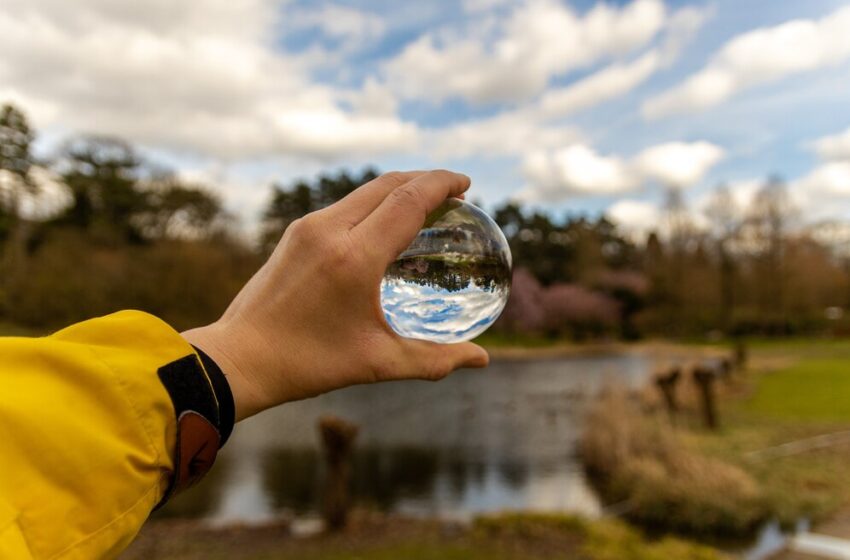Innovative Water Conservation Technologies in the Fight Against Climate Change

Water scarcity is a growing concern worldwide, exacerbated by the impacts of climate change. As our planet warms, the frequency and intensity of droughts increase, putting immense pressure on our already limited freshwater resources. In response, scientists, engineers, and environmentalists are turning to innovative technologies to conserve water and ensure its sustainable use for future generations. This blog explores some of the most promising water conservation technologies that are making strides in the fight against climate change.
Smart Irrigation Systems
One of the largest consumers of water is agriculture, accounting for approximately 70% of global freshwater withdrawals. Traditional irrigation methods often lead to significant water wastage through evaporation, runoff, and inefficient water application. Enter smart irrigation technologies, which optimize water use by delivering water directly to the roots of plants in precise amounts.
- Soil moisture sensors measure the moisture content in the soil and relay this information to an irrigation controller, which then adjusts the watering schedule accordingly.
- Weather-based controllers use local weather data to predict water needs and adjust irrigation schedules to prevent overwatering during rainy periods or increase watering before a dry spell.
- Drip irrigation systems, though not new, have been refined with smart technology to further reduce water usage by delivering water directly to the plant’s root zone, minimizing evaporation and runoff.
Atmospheric Water Generation
Atmospheric water generation (AWG) is a revolutionary technology that extracts water from humid air. These systems use refrigeration techniques to condense moisture from the air, producing clean water even in arid regions. While energy-intensive, recent advancements have incorporated renewable energy sources, such as solar power, to make AWG a more sustainable option for water production.
- Solar-powered AWG units are particularly promising for remote areas without access to clean water or electricity. These units can produce enough water to support small communities, schools, or emergency relief operations.
Wastewater Recycling and Reuse
As freshwater resources become scarcer, the recycling and reuse of wastewater have become essential strategies in water conservation. Advanced treatment technologies can now turn wastewater into high-quality water for various uses, including irrigation, industrial processes, and even potable water.
- Membrane bioreactors (MBR) combine traditional wastewater treatment processes with membrane filtration to remove contaminants more effectively, producing water that is safe for non-potable reuse.
- Greywater recycling systems collect water from showers, sinks, and laundry, treating it for reuse in toilet flushing, landscaping, or irrigation, significantly reducing the demand for fresh water in households and commercial buildings.
Artificial Intelligence and Machine Learning
Artificial Intelligence (AI) and Machine Learning (ML) are at the forefront of optimizing water conservation strategies. These technologies can predict water demand, identify leaks, and optimize water distribution systems to reduce waste.
- AI-powered leak detection systems analyze water flow data in real-time to identify anomalies that may indicate leaks, often detecting issues before they become major problems.
- ML algorithms can predict water demand with high accuracy, allowing water utilities to adjust supply dynamically, reducing the need for large storage capacities and minimizing losses through evaporation and over-pumping.
Rainwater Harvesting Systems
Rainwater harvesting is a simple yet effective method for capturing and storing rainwater for later use. Modern rainwater harvesting systems have become more sophisticated, incorporating filtration and purification technologies to make collected rainwater safe for a wide range of uses.
- Modular tanks and smart monitoring systems enable households and businesses to maximize rainwater capture and use, reducing dependence on municipal water supplies and mitigating the impact of droughts.
The Path Forward
The fight against climate change and its impact on water resources requires a multifaceted approach, combining technology, policy, and community engagement. The technologies highlighted here represent just a fraction of the innovative solutions being developed to conserve water. As we continue to face the challenges posed by climate change, the adoption of these technologies, along with sustainable water management practices, will be critical in ensuring a water-secure future for all.
Embracing these technologies not only helps mitigate the effects of climate change but also promotes a more sustainable and resilient water future. As we advance, it will be essential to support research and development in this field, encourage the adoption of efficient water use practices, and foster a culture of conservation that values every drop of this precious resource.
(Nominate Now: Join us to spotlight your achievements! Be part of the elite in the business and finance community. Exciting opportunities await!)








